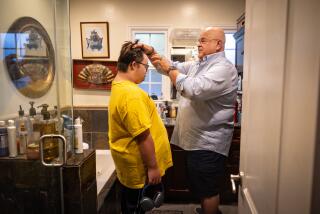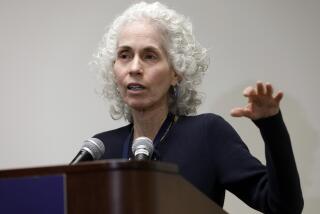‘Sin Tax’ for Trauma Centers
Los Angeles, as everyone knows, is a city of cars, which means that trauma centers here do a bang-up business. If you are in a serious car accident--a leading cause of death for people under 35--your best chance of surviving is to be treated at a trauma center within what is known as the “golden hour” after the crash. Assuming, that is, you can get into one.
That is an assumption we too often take for granted. No federal, state or local law requires hospitals to provide trauma centers, the emergency-rooms-on-steroids that come stocked with specialized equipment and staffed by highly trained doctors and nurses, including surgeons not just on call but on the premises. All this costs money--$18,000 an injury on average, not counting whatever hospitalization or care the patient receives afterward. In these days of tightly managed care, private insurance doesn’t begin to cover the costs, and Medi-Cal and other government programs for the uninsured do worse.
The 10 private hospitals in Los Angeles County that have trauma centers lost $17 million on trauma care last year. No wonder 10 other hospitals have closed their centers in the last 15 years, even as the county’s population continues to increase and crowd the ones that remain open. As for the three county-run hospitals with trauma centers, the county health department faces an $800-million deficit over the next three years. In addition to the trauma centers, nearly every other health service the county offers is at risk.
Last year, the state Legislature provided a one-time, $17-million tourniquet to keep trauma centers in Los Angeles County from bleeding to death. Now the state, like the county, is struggling with its own deficit.
It comes down to this: Trauma care saves lives but loses money. If we want to save this crucial service, we have to come up with a steady way to pay for it.
The Healthcare Assn. of Southern California, a consortium of hospital directors, doctors groups and other health-care providers, has come up with a plan: Add a fee to the fines charged to anyone caught speeding in the county. The money would be collected and distributed by a specially created district to ensure that it went solely to trauma care.
The county Board of Supervisors is hesitant to put any fee increase on the November ballot. It shouldn’t be. Anti-tax purists would have a hard time criticizing a “sin tax” on a violation that plays such a direct role in the traffic accidents that send so many to trauma centers. Sensible people surely will recognize that if we want trauma care to be there when we need it, this is a rational way to make sure it is.
More to Read
Inside the business of entertainment
The Wide Shot brings you news, analysis and insights on everything from streaming wars to production — and what it all means for the future.
You may occasionally receive promotional content from the Los Angeles Times.










